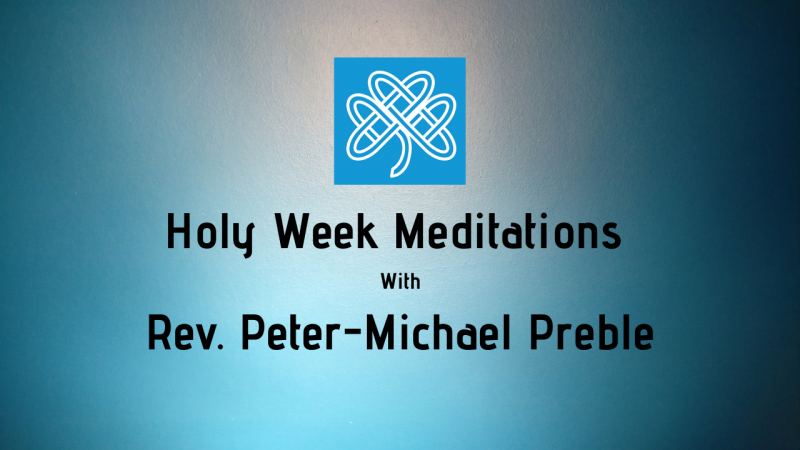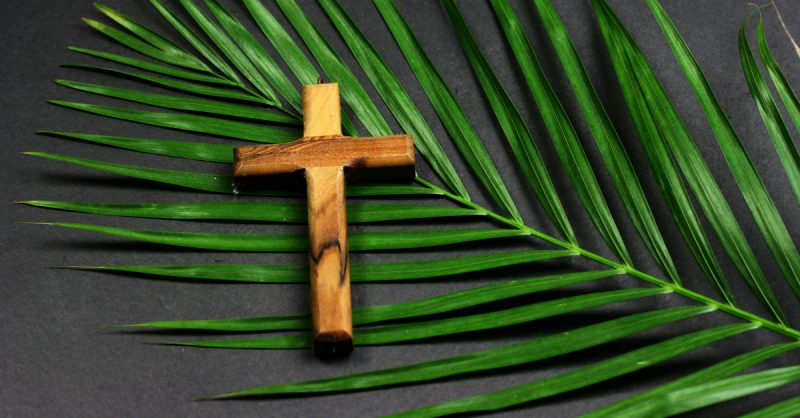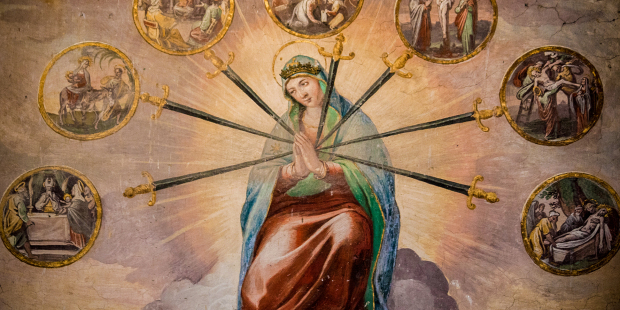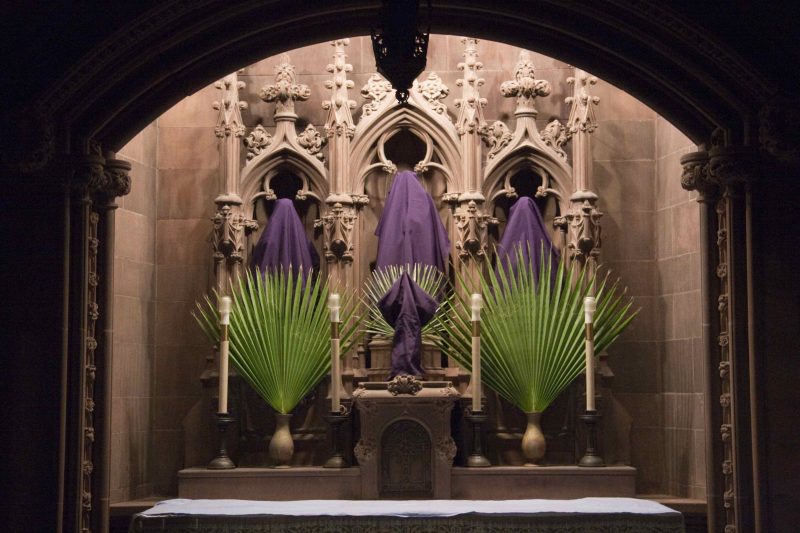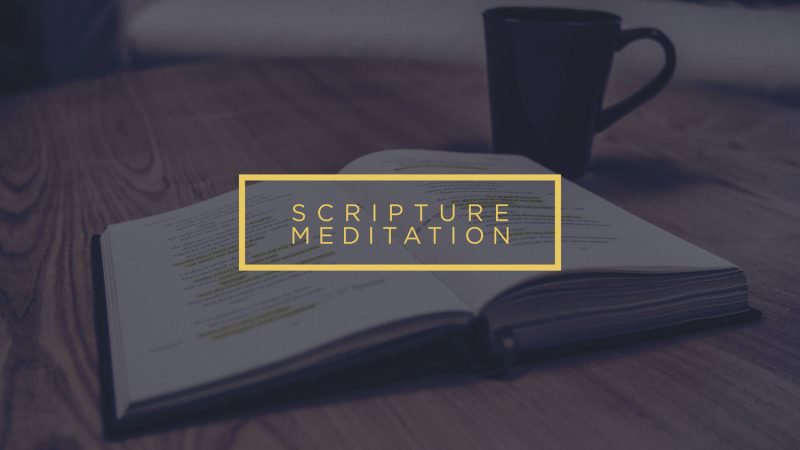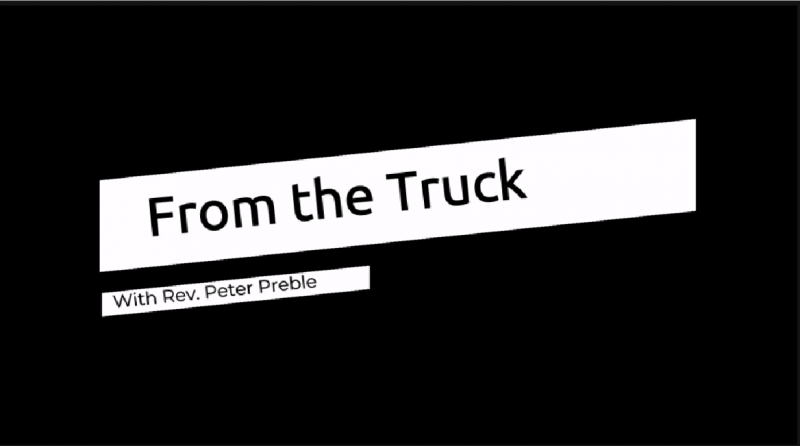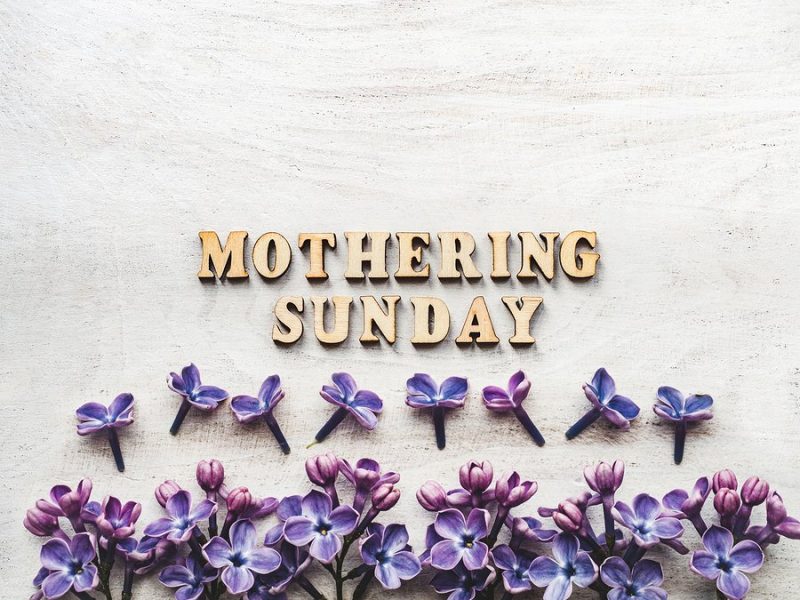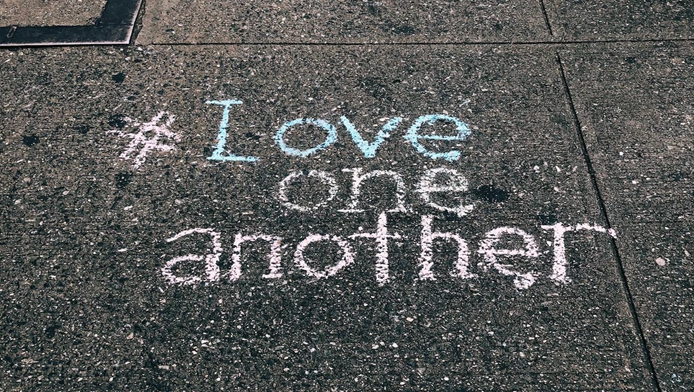Palm Sunday: Entry Into Jerusalem
Today we begin our Holy Week journey. We begin the week with shouts of Hosana, but by the end of the week, we will be shouting Crucify Him! Crucify Him! But we also cannot and should not despair because we know that in the end, love wins, and death is destroyed, and that makes the journey and the pain of the coming week worth it.
We see Jesus coming into Jerusalem riding on the humble donkey. This is an essential part of the story. This is a day of contrast, and we see the contrast in the way Jesus enters the city. When a conquering king would come into the city, he would ride on a horse, usually a large horse that would make it truly clear that he held all the power.
But here comes Jesus, being hailed as King but not riding on a horse but coming in on a donkey. The donkey is a humble beast, and if the King arrives on the donkey, it signifies that he is coming in peace. Jesus is being hailed as King, but he is not the King of power and wealth but rather the King that brings peace to the world.
Regardless of how he entered the city, he was being hailed as King, which made the establishment extremely nervous. Jesus had been this guy in the background for a long time, and he is gaining the attention of the religious and the political establishment. Not long ago, he caused quite a ruckus in the Temple when he turned the tables over, and now, he is coming into the city being proclaimed King.
Those in power do not like to give up control. When their power is threatened, they do all sorts of things. They create false situations that cause people to feel that they will somehow lose power as well. People in power can get others to believe whatever they say for no other reason than those in power. The religious authorities stayed in power by keeping the people down and subservient to them. But Jesus knew what he was doing.
Jesus had to stir the pot. Jesus had to get the religious and political folks nervous about what he was doing. Jesus needed them to get so worried that they had no other choice but to put him to death. So, he brought attention to himself in a grand way. Go big or go home!
Now, we all know the end of the story, so I want to look in a different direction. We will talk a lot over these next few days of salvation, redemption, sanctification, sacrifice, and many other Holy Week themes. But salvation did not happen on the cross; salvation happened in the cradle in Bethlehem.
We need to go back to the beginning of the story, way back to the time of creation itself. God created humanity and placed humanity in the garden. God walked, physically walked with humanity at this time, but, as we know, something happened, and humanity was placed outside of the garden, and God no longer walked with creation. There was a distance between God and humanity. I don’t want us to dwell on the why but only that it happened.
God tried to fix this relationship, but it was not until God sent Jesus, his son, to show humanity a new way, the way of love. The moment Jesus was born in Bethlehem, God and humanity’s relationship was restored, for God once again walked with humanity. Salvation came into the world not through the cross but through a tiny baby. Salvation came to the world not through violence but through love—the love of God for all of creation.
The crucifixion was necessary, but not for the sacrifice but for love. Sure, God could have done things a different way, but the way of love is a way of obedience and sacrifice. Jesus willingly went to the cross; everything he did, he did willingly. All of the pain and anguish was not some blood sacrifice to pay a debt owed to God because of something that happened “in the beginning,” but instead, it was all for love. Love requires a sacrifice; love requires death in a sense, a death to self and our ambition.
Jesus came to show us a new way to live and a new way to act, and that is the way of love. Jesus died on that cross as an ultimate expression of love. Jesus was hanging on that cross, with his arms open wide, signifying that all are welcome in the kingdom of God, not just a few select people but everyone.
As we walk the way of love this week, let us keep in mind that everything that we will witness was to show us a new way of living and a new way of interacting with each other. And remember the new commandment that Jesus gave to us, love one another.
Amen
The Friday of Sorrows
The Friday before Palm Sunday is set aside as a time to recall and meditate on the Blessed Virgin Mary’s sorrows. The Friday of Sorrows is the day to remember Mary’s physical, mental, and spiritual pain upon seeing what was done to her Son.
I believe that the Reformation went too far in its reform of traditions surrounding Mary and her life. She was and is the mother of God, the Theotokos, the God-bearer, the one who brought Jesus into the world. Of all of the women of her time, God chose Mary for this honor. The Reformation has all but erased her role in all of this, and for that, I am sad.
As I wrote about just before Christmas, yes, Mary did know. Mary knew in her heart what was going to happen. She may not have known all of the details of the events of Holy Week, but she knew that her Son would eventually die. But the knowledge that death is coming does not make it any easier when it finally arrives.
In my work as a hospice chaplain, I deal with death and grief daily. The philosophy of hospice is to prepare the patient and the family for a good end. But all of the preparation in the world does not make it any easier when your loved one slips away to the other side.
Of all the images of Mary in art, and the one that shows her true sufferings is in the movie the Passion of the Christ. In that movie, we see Mary, from a distance watching all that is happening to her Son. She is present for his trial, for his whipping and beating, and yes, she is there for his crucifixion and death. She is present but cannot do anything to stop it. She, like Jesus, has consented to the will of God at that moment in her life.
As we prepare to follow Jesus during the coming days of Holy Week, let us not forget the one who gave him birth and the pain and sorrow she felt.
O LORD in whose Passion, according to the prophecy of Simeon, the sword of sorrow did pierce the most loving soul of thy glorious Virgin Mother Mary: mercifully grant that we, who devoutly call to mind the suffering whereby she was pierced, may, by the glorious merits and prayers of all the Saints who have stood beneath the Cross, obtain with gladness the benefits of thy Passion; who livest and reignest with the Father, in the unity of the Holy Spirit, ever one God, world without end. Amen.
Collect for the Friday of Sorrows
Incarnation and Atonement
It seems fitting that this topic of Atonement comes up as we approach Holy Week and Easter. Over the next few weeks, a lot of time and energy will be spent talking about and meditating on the Cross of Jesus Christ. I will be one of those in meditation but not from the bloody perspective but the perspective of love. Although I believe the crucifixion was necessary, as was the resurrection, it was the Birth of Jesus Christ that mended the rift between God and humanity.
The 2nd-century write Irenaeus wrote about the atoning nature of the Birth of Jesus Christ. From the moment of conception, Jesus was sanctifying humanity. He sanctified the nature of woman by connecting to the essence of womanhood in the womb. As he progressed through the various stage of life, he joined with the essence of each stage of development and sanctified humanity.
Jesus came to reset the clock or hit the reset button on humanity’s relationship with God. The Birth of Jesus returned humanity to its natural state of walking with God. In Genesis, we read that after the creation of humanity, God walked with humanity in paradise. Sin entered the world, and that relationship was broken. God no longer physically walked with humanity. The image I have is God and humanity walking and spending time together not just in a spiritual sense but in a very physical sense. The Creator was present with the creation. Humanity became corrupted and needed sanctification.
Irenaeus was writing to combat the heresy of Gnosticism that believed that Jesus was not both human and divine. They did not believe that the Old Testament’s God was the true God because that God created matter, and all matter is flawed and sinful. Jesus could not have been born in the flesh for the same reasons; all flesh is matter, and matter is evil. The Gnostic belief that Jesus put on his humanity like a coat and then took it off before the crucifixion, so God was not crucified but the man Jesus.
Centuries later, Peter Abelard would write, rejecting the idea that Jesus came to pay a ransom to Satan for humanity. This idea was rejected because it would place Satan on the same level as God, making Satan another God that had to be satisfied. But Abelard also dismissed the idea that Jesus’ death was in payment to restore God’s honor. In the work of Abelard, there was also a rejection of the judgment of God that said a person was damned to hell for all of eternity until the person accepted the death of Jesus Christ as a payment for their sins. This would indicate that the mind of God could be changed. This perfect God that does not change could somehow change God’s mind because of the acceptance of the death of Jesus. Abelard taught that Jesus died not to repay a debt but as an expression of the love of God.
I appreciate what Abelard was doing, and the result of his writing was to see himself excommunicated from the Church. I feel a close kinship with Abelard as a church has excommunicated me for my positions. It was not over my position on the Incarnation as it involves the Atonement. Still, it did have to do with the love of God for all of God’s creation and this idea that the God that sent Jesus to the world is not a vengeful God that seeks to rule by fear but that we follow God out of love.
I have a real problem with this idea of a blood sacrifice and that God sent Jesus just to die. To me, this does not put God in a, particularly good light. This idea of the blood sacrifice is at odds with the God of love that so loves the world that he sent Jesus, not to judge the world but to show us a new way, a way of love.
Because of this, I must reject the Satisfaction Theory of Atonement espoused by Anselm and which Abelard wrote against. This idea that humanity had insulted God’s honor and that Jesus had to come in human form, the same form that offended God seems theologically ludicrous to me. Yes, sin is repugnant to God, and yes, humanity distanced itself from God but this idea that God could be insulted in such a manner that only a sacrifice could repay that debt?
Coming off that theory, the Theory of Penal Substitution seems at odds with this idea of a loving God and thus another rejection from me. The theory was first developed during the Protestant Reformation and advocated by both Luther and Calvin. The Reformed Theologian Charles Hodge more concretely developed this theory placing it biblically and putting in the historical roots of the early Church.
My spirituality and theology are grounded in this idea of revolutionary and God’s radical love as shown to us by Jesus Christ. “For God so loved the world…” “God sent Jesus not to judge the world…” Along with being rooted in love by theological understanding comes from the idea that it was the Birth, the Incarnation of Jesus Christ that redeemed the world. In answer to the question of why Jesus died on the cross, I lean towards the Moral Theory of Atonement and what Christ came to do was to be an example of the great love that God has for humanity.
Jesus willingly stretched his arms out on the cross in a posture of welcome and love. There is no payment. There is no blood sacrifice. Jesus came to demonstrate love. Jesus witnessed to us how to serve God through love and not through fear. We perform good works for others because of the grace of love poured out on us through the witness of Jesus Christ.
So why then did Jesus die? I see a two-fold reason, one is spiritual, and one is political. Spiritually, as already aggressed, Jesus died as the ultimate expression of love. Yes, we are called to death, but not in a physical sense but rather spiritually dying to self-sense. When we move to love others and wish to serve others, we have to die to what the self wants. We recognize the divine in each human, and due to that recognition, we love them.
But there was a political reality as well. Jesus angered the political and religious leaders of the day. Jesus made them extremely nervous. He led multitudes of people toward a different way of religious expression, which threatened the power of the religious elite. By allowing himself to be called King, Jesus put himself at odds with the political reality of the day.
Was there another way? Sure, and Jesus pleaded with God in the garden before his arrest but willingly gave in to the plan again to express love.
Jesus was put to death on trumped-up charges in a kangaroo court as an innocent. The act of salvation was completed at the Birth of Jesus, the act of love was completed on the cross.
The Season of Passiontide
Today, the 5th Sunday of Lent begins the season with the Season of Lent known as Passiontide. Traditionally this was the beginning of Holy Week, although, with the liturgical reform, Passion Sunday and Palm Sunday have been joined together.
Passion Sunday was also the traditional time that the color of the vestments changed to purple, and all of the crosses and statues in churches were covered and would remain hidden until the Great Vigil of Easter.
It seems we do not like to meditate on the suffering of Jesus. We do not want to think of suffering but, it is important to recall these events that lead up to Easter. It has been said by many that we cannot celebrate Easter without Good Friday. We cannot have the resurrection without the death of Jesus.
What Passiontide does is invite us to inhabit the experiences of betrayal, abandonment, loneliness, and unjust suffering, to see what causes these things, sin, and to place our hope in the One who redeems them.
But it also enlightens us to what hatred can do. Hate is what nailed Jesus to the cross. Hatred, jealously, and the fear of losing power. All of these conspired together to murder Jesus, and the Religious Authorities of the day were the ones who did it.
Jesus was very hard on the religious leaders of his day. He called them a brood vipers and hypocrites. They were calling the people to do things that they were not doing. They added to the poor’s burden and those on the margins, the very people Jesus came to minister to.
But in the end, Jesus willingly gave himself up for us. This was done because of what St. John wrote in the 3rd chapter of his Gospel, “for God so loved the world that he gave his only Son Jesus.” We need to look past the blood and the gore of the Crucifixion and see in that scene the love of God, God who was willing to take on our frailty to show us a new way, the way of love.
Sir, We Wish to See Jesus
I think I am the world’s worst gardener, well, at least the world worst at starting things from seeds. I am not sure if I do not have the patience, or I just forget. I have tried everything. I have read books, blog posts, Google, everything, and nothing seems to work. So, I only buy plants that have already grown, and I seem to do ok with those.
We are coming to the end of our Lenten journey, and I have to ask, how has it been going? For many, it feels like we have been in a state of perpetual Lent since last year. A year ago, I had just started in a new interim position, and we were preparing for our second Sunday of virtual worship. We had begun to think about Easter, but we all thought for sure we would be back in the Church by that time. Well, here we are, preparing for our second Easter of virtual worship. So, I ask again, how has your Lent been going?
Today’s Gospel takes place during Passover. People have come from all around to worship, and of course, Jesus is there with his Apostles. By this time, the word has spread about Jesus and people and intrigued by what they have been hearing.
“Some Greeks” have come, no doubt they heard about Jesus along the trade route, and they want to learn more. They come to Philip and ask if they can see Jesus. Phillip goes and checks with a couple of others who check in with Jesus. The funny thing is the passage is not clear if they saw Jesus or not. The Apostles come to Jesus, presumably ask if he will see the Greeks, but he starts talking.
In John’s Gospel, this is the first time that we hear Jesus speak of his death. Jesus is getting his friends ready for what is about to happen, but Jesus being Jesus, does not come right out and say it.
Jesus uses the image of a seed.
Way back when I was in seminary, I had a class on preaching. The professor teaching the class told his students that we needed to use imagery that was understandable by those listening or they will not understand when preaching. Jesus often used agricultural or fishing imagery because that is what those listening would have understood. But it makes us work a little harder.
Jesus says that “unless a kernel of wheat falls to the ground and dies, it remains only a single seed. But if it dies, it produces many seeds.” For there to be life, there has to be death. For the seed to grow, it must first die.
The kernel of wheat is a seed with a hard outer shell that protects the inside’s soft seed. This is important when the seeds are being stored so that the seeds are not damaged. But the outer shell of that seed has to give its life so that what is contained inside may flourish and grow.
Jesus is speaking of his life and what he has to do. He has to die so that there will be life. He will go into the ground, his tomb, so that there will be life eternal.
But then, Jesus turns the topic to others, to you and I, and what we have to do.
Yes, Jesus speaks of dying, and how we have to die, we have to take up our cross, and all of that. But remember, Jesus used metaphorical language, so we are not speaking of actual death here but spiritual death. This is why I ask you at the start, “How is your Lent going?” The giving up of things during Lent is to train us to transform ourselves into another being. To lose that hard outer shell so that the soft seed inside might begin to grow.
We need to die to ourselves. This does not mean we need to sacrifice ourselves or our comfort, some might be called to do that, but this is not a blanket call for us. We are to die to sin. Yes, I said sin. I know we don’t like to talk about sin, but we have to. Sin is missing the mark, not living up to our potential, not using the gifts God has given us to build up the kingdom.
But there is also another sin that we need to cause the death of. The sin of racism, we saw this sin play out in Atlanta this past week. We need to cause the death of the sin of hatred in all of its forms. We need to cause the death of the sin homophobia and all of the other phobias around us. We need to die to all of this sin because that is what keeps us from shedding that outer shell that is preventing that seed from growing.
Friends, the season of Lent is all about shedding that outer shell. It is hard work; the soil has to be just right. We have to use the right amount of water, fertilizer, and sunlight, or nothing happens. Lent is when we prepare the soil by reading Scripture, increasing our daily prayer routine, or starting one. We use this time to give up bad habits and create some new ones.
As we continue to walk with Jesus toward the cross and eventual resurrection, let us continue to work to remove that hard outer shell so that what is inside may blossom and grow.
Amen.
From the Truck: Episode 4
In this Episode of From the Truck, Rev. Peter catches up with all that has been going on since the last episode almost a year ago. Please like the video and subscribe to the channel.
Mothering Sunday
Mothering Sunday
For us here in the United States, Mothering Sunday might sound a little strange; after all, Mother’s Day is in May. Mothering Sunday was the inspiration for Mother’s Day, but the tradition goes back as far as the middle ages and has a profoundly spiritual significance to it.
As with most things spiritual, it isn’t easy to place an exact date for Mothering Sunday’s origin. It has been tied to the 4th Sunday of Lent since the Medieval Times as sort of a respite from Lent’s rigors.
The original Scripture readings for this day are filled with references to mothers and metaphors for mothers. The introit for the day comes from the Prophet Isiah 66:10-11 and Psalm 122:1
“Rejoice ye with Jerusalem; and be ye glad for her, all ye that delight in her: exult and sing for joy with her, all ye that in sadness mourn for her; that ye may suck and be satisfied with the breasts of her consolations. Psalm: I was glad when they said unto me, we will go into the house of the Lord.”
In Paul’s Letter to the Galatians (4:21-31), Paul uses the story of Sarah and Hagar as an allegory of Jerusalem, “which is the mother of us all” Paul understands this story as an allegory and advocates for an understanding of motherhood that transcends the material world.
The Gospel lesson for the day is the story of the Feeding of the five thousand (John 2:1–14) and is a reminder of mother earth gifts.
During this time, the tradition began of visiting one’s “Mother Church,” the church of one’s baptism, or of visiting the closest Cathedral or Mother Church of the Diocese.
The practice of celebrating Mothering Sunday was revived in reaction to Mother’s Day’s creation in 1913 by Anna Jarvis in the United States. Constance Penswick Smith published a play in 1913 called In Praise of Mother: A Story of Mothering Sunday and a book A Short History of Mothering Sunday in 1915. But her most influential work in the revival of Mothering Sunday came with the 1921 publication of The Revival of Mothering Sunday, a book in four chapters pointing that Mothering Sunday should transcend biological motherhood and include:
‘The Church – Our Mother’
‘Mothers of Earthly Homes’
‘The Mother of Jesus’
‘Gifts of Mother Earth’
On this Mothering Sunday, let us call to mind all those who have helped mother us in our lives.Let us Pray:
Loving God,
Thank you for mums and children and for all the joy of family life. Be with those who are grieving because they have no mother; Be close to those who are struggling because they have no children; Be near to those who are sad because they are far apart from those they love. Let your love be present in every home and help your church to have eyes to see and ears to hear the needs of all who come. We ask this in the name of Jesus Christ our Lord. Amen.
God’s Love for All
It has been said that each preacher has only one sermon and that that sermon is adapted to fit various situations. I believe this to be true, and for me, that one sermon and that I constantly preach is the sermon about the unconditional love of God for everyone, without exception. Almost every sermon I have preached in the last 15 years has been about this radical concept of love that Jesus taught us and commanded us to follow.
In today’s Gospel lesson from St. John, we hear the famous line, “‘For God so loved the world that he gave his only Son, so that everyone who believes in him may not perish but may have eternal life.” After “judge not lest ye be judged,” this is probably the most often quoted line of Scripture, but the least practiced and understood.
Loving one another is not a suggestion but, as I previously said, a command of Jesus, “A new command I give you: Love one another. As I have loved you, so you must love one another. By this everyone will know that you are my disciples if you love one another.” We will be known by how we love each other, including those we disagree with.
Now, let me pause here for a minute for a point of clarification. The command is to love. Jesus says nothing about liking people. There is a difference between loving someone and liking them, and yes, you can love someone without liking them. We can also love someone without agreeing with their choices, not that anyone is looking for our permission or our approval.
Love is an interesting word. In English, we have one word for the concept or emotion of love. For example, saying I love my spouse is the same word we use when we say I love hamburgers. It’s the same word but a different emotion, well, at least I hope it.
As we know, the Gospels have come to us from Greek, so we have translated what we read from the original Greek language. In Greek, there are seven different words for love. There is a word to describe romantic, passionate love. A word for intimate, friendship love. A word for playful, flirtatious love. Unconditional family love. Self-love, love built on commitment, and finally Agape, or the all-inclusive love.
It is this Agape or all-inclusive love that we turn our attention to today. Agape love is generally an empathetic love toward Humanity itself and is sometimes connected to altruism since it involves caring for and loving others without expecting anything in return. Another way of putting it is this love sort of pay-it-forward love—people helping others selflessly—is the foundation of great societies and communities.
This Agape love is the love that causes us to be concerned for what happens next door but also for what happens across the world. This is the love that moves us to action when we see the devastation from a storm, extreme poverty, or children being held in cages. This is the love that makes our hearts hurt when we see the faces of people fleeing their home to find a better life and risking it all to see that it happens. This is the love that does not allow us to build walls but to build bridges. This is the love that causes us to not only give a handout but a hand up. This is the love that commands us to love others without condition because this is the love that God has shared with us. This is the love that requires forgiveness for past wrongs and hurts again because that is the love that God has shared with all of us.
One of the many blessings I have had in ministry was responding after a disaster. Shortly after Hurricane Katrina slammed into Louisiana, I was sent to Baton Rouge to set up a logistics operation for the hundreds of thousands of pounds of relief aid that would be pouring into the state. The kindness and generosity shown were amazing.
The one incident that stands out for me to this day was the story of a small Roman Catholic Church in Baton Rouge that ministered to refugees from Vietnam. This church had nothing, no resources or staff, and they were not supported by the government or by the Red Cross. In fact, the Red Cross refused to certify them as a shelter, even though they were sheltering more than 100 people because they did not meet their narrowly defined criteria. But this little church opened its doors to the hundreds of Vietnamese people who had been displaced in New Orleans.
I was working out of the Catholic Charities Office, so we went to see what assistance we might offer them. I was reminded that they were used to housing refugees, and so this was just an extension of what they have always done, but it was more than that. They opened their doors, they opened their wallets, and they opened their hearts because it is what we do as Christians. They saw people in need, they knew they could help, and the love of God helped them do it. Truly a blessing.
To truly understand this command to love everyone, we have to return to the story of creation. In the story of creation, God creates the world and everything in it by speaking it. God speaks creation into existence except for when God creates Humanity. Genesis tells us that God formed Humanity from the dust of the ground. The hands of God fashioned Humanity out of nothing, but that is not the most amazing part of the story. After God fashioned Humanity with God’s own hands, God breathed life into Humanity. The very breath of God, God’s Ruach, was breathed into the lungs of Humanity. Genesis tells us that God created Humanity in “our own image and likeness,” and the breath of God is the divine spark that is inherently present in all of Humanity. It is that divine spark, that breath of God, that compels us to love all of Humanity. In the end, God sat back and looked at creation, all of creation, and said, “it is Good.”
But for me, it all comes down to the verse from today’s Gospel. For God so loved the world that he sent Jesus to show us a new way, the way of love. Think about it; God loved the world, all of creation, to such an extent that God was willing to humble Godself in the person of Jesus Christ, to take on this frail form that we have for no other reason than to show us a better way.
Sure, we can get all theological and talk about substitutionary atonement and all the rest, but I am a simple guy with a very simple theology that tells me that this God of love, in an act of love, sent Jesus to say to us, there is a better way.
There was a wedding not long ago in England. A young couple was being married, and they invited a preacher from the United States to preach during their wedding. Perhaps some of you know this story. But this preacher spoke about love, not just the love of the couple standing before him, but the love that God has for all of creation and our part in that. In that sermon, the preacher said, the way of Jesus is the way of love. And the way of love will change the world.
One of the more famous quotes of Mahatma Gandhi is, “be the change you want to see in the world.” Friends we need to love, and we need to be love to the world. We start in our own little sphere of influence, from the places where we are right now, and then that love spreads, and like Bishop Curry said at that small wedding, that love will change the world.
Amen.
Flipping Over Tables
There is a viral MEME, you know, the thing that has a photo of something and usually has a funny caption, of Jesus clearing the Temple of the Money Changers. The caption on the MEME reads, “If anyone ever asks you what would Jesus Do? Remind them that slipping over tables and chasing people with a whip is within the realm of possibilities.” This makes for a nice soundbite or MEME, but how theological is it?
The other problem is the soundbite is asking the wrong question. The question should not be what Jesus would do since we are not Jesus. The question should be, what is Jesus asking us to do?
Sure, in the story from the Gospel of St. John, we do see Jesus, in the Temple, with a whip, flipping over tables, and chasing people. But as I always caution, Scripture usually goes much deeper than what we first encounter on the page. We must drill down into the passage to see what is happening.
As he has done on many previous occasions, he comes to the Temple and finds the tables of the Money Changers there. Worshippers needed to buy things for the sacrifice, and they could only buy them from the sellers in the marketplace at the Temple. As a way for the Temple to make a little extra, they created their own currency and required that this currency be used in the Temple precincts. The exchange rate was set, usually not particularly good for the person exchanging their funds.
Now there are a couple of important things happening in this story. First, Jesus needed to get the attention of the Temple authorities. His time was coming to an end, and he needed to make a big splash to get their attention. Jesus needs the Temple authorities to be concerned about him, but he has just been some backwater preacher up until now. Jesus needs to go big or go home.
The second thing happening here is the focus of Jesus’ rage is not on the political system or the injustice of big corporations. Jesus’ rath is on those in authority in the Temple, the Chief Priests, and Scribes. The ones who study the law all day and are supposed to have the best interests of the people they serve at heart. The authorities know what is going on, but they turn a blind eye to it because, well, simply put, it is making them money.
Jesus is calling out the hypocrisy of the system in the Church. The system that has been created benefits those in power, not the poor or those on the margins. Under the watchful eyes of the Authorities in the Temple, the system that has been created makes it difficult for everyone to be accepted and feel welcome. Jesus is coming to flip the entire system over, not just the tables of the Money Changers. Jesus comes and flips over the practice of sacrifice and offers himself as the ultimate sacrifice once and for all. John places this story not as a stand-alone but as part of the larger Gospel story of change and transformation.
The third thing happening here is the personal dimension of the story. There is always a personal dimension to the Gospel for me. The Jews believed that God resided in the Temple, God’s house if you will. Jesus is changing the dynamic of theological thought that takes God out of the Temple of brick and mortar and places God in the Temple of Humanity, in our hearts. But for God to dwell there, there must be room. Jesus asks each of us to chase away those things that keep us from the true worship of God. Jesus wants to cleanse the Temple of our hearts; he wants to slip over the tables of hatred, racism, classism, nationalism, and all the other isms that live in our hearts. Jesus wants to change our Temple from brick and mortar to compassionate, caring flesh that sees us not using people for what we can gain but helping people because, like us, they are beloved children of God. Jesus wants us to make room for God in our lives and not just in a superficial way but in an intense and personal, dare I say, intimate way.
My wife and I have been clearing out spaces in our home that we do not usually see. You know the places, closets, basements, and all the rest. As our baby gets older, we are discovering she will need more room to play, so we have to make room. We are going through things that we no longer use or are broken and discarding some, selling some, and giving away most.
The season of Lent is a particular time on the Church calendar. The services and the readings point towards this idea of renewal and cleansing. Take time during this season to make room in your Temple for God. Clear away some of the things that keep us from that deep relationship that God wants to have with each of us.
Amen

